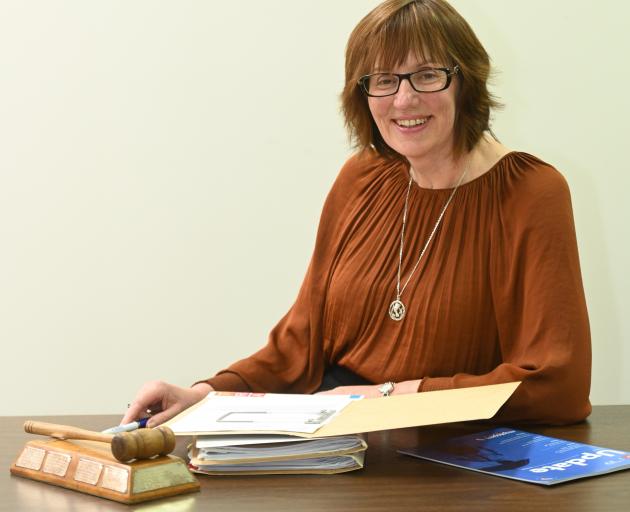
In a recent update Business South board chairman Neil Finn-House said it was hoped the successful applicant for the chief executive position would be announced next month.
The OSEA and Otago Chamber of Commerce jointly announced last October the two organisations would merge, forming new entity Business South. Chamber chief executive Dougal McGowan resigned in January.
Mrs Nicholls, who has been at the helm of the OSEA for five years, said while she was "fully supportive" of the merger, she did not apply for the chief executive role.
Instead, she was taking the opportunity to move into governance roles that drew on her knowledge of the region’s business landscape and her cross-sector experience.
A qualified lawyer, Mrs Nicholls has experience in small, medium and large businesses across manufacturing, education and not-for-profit sectors, including senior management roles in fast-moving consumer goods companies and tertiary education. She is chairwoman of the Dunedin Prison Trust and a member of the Grow Dunedin Partnership.
"I feel very privileged to have worked in this role to support business across Otago and Southland. I’m proud of what OSEA has achieved and I’m very grateful to the incredible team at OSEA, who have worked tirelessly.
"But business associations need to evolve and change. A merger with the Otago chamber is the beginning of a new way of operating to meet the future needs of business in our region," she said.
Reflecting on her tenure with the OSEA, Mrs Nicholls said the organisation was born in a crisis, founded in 1890 as a direct response to the maritime strike, and it had supported business through many more crises over the years, most recently the impact of Covid-19.
She was particularly proud of its work during the lockdown period. During lockdown, she, the three other BusinessNZ network regional chief executives and the chief executive of BusinessNZ met virtually twice a day, enabling each region to share and provide feedback on business issues to government officials and ministers almost in real time.
"The Government listened and, as a result, we achieved a a significant number of changes to Government initiatives," she said.
Mrs Nicholls said she inherited an organisation with a nine-year deficit when she took the role in 2016 and left it in a "strong financial position". Membership had grown, she had extended collaboration with the chambers of commerce in Otago, Southland, Queenstown and Wanaka, and forged strong links for the region within the national BusinessNZ network and political landscape.
Issues which the OSEA had advocated for and supported its membership on during her time included successfully advocating for changes to the Employment Relations (Amendment) Bill, fair pay agreements, contractors as employees, the Holidays Act review and the Employment Relations (Triangular Employment) Bill, pay equity, transmission pricing, minimum wage increases, immigration, skill shortages, business confidence, exporter concerns, the merger of institutions of technology and polytechnics into one organisation, the zero-carbon economy and oil and gas.
As well as advocacy, the OSEA also provided training programmes, employment law advice and business insights.












